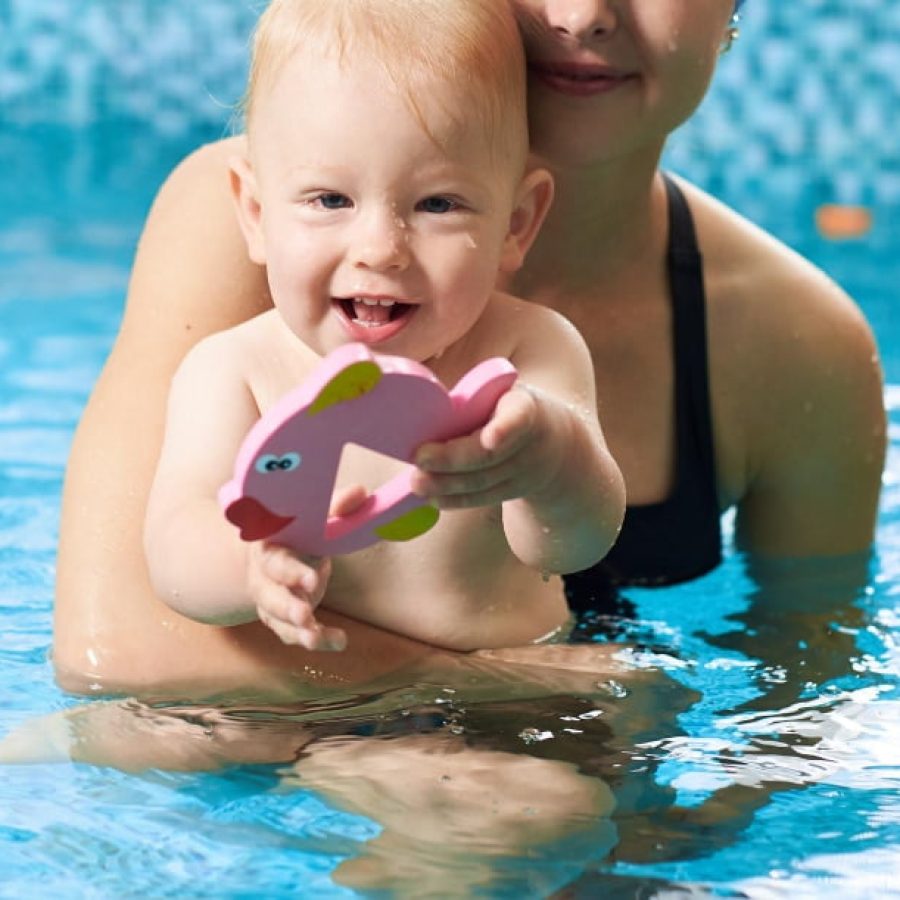Just as any other event in the early years of your child, it’s up to the parents to define when it’s time to introduce their little ones to new adventures. Considering that, understanding when to start swimming lessons is fundamental: once you know that, you’ll encourage your child to explore the world without fear!
Not only are swimming lessons important to your child’s health and motor development, but it’s also an important social activity. Also, although no one likes to think of bad possibilities, swimming skills can eventually help to save your child’s life – or someone who needs help and it’s close to them.
When is my child ready for swim lessons?
From as young as 6 months old, your child can be introduced to a watery environment aside from their bathtub.
If the child reacts naturally in situations involving water, this is already a good sign. Keep a close eye on your child to see if:
- They demonstrate to enjoy their time in water;
- They can get their face wet without swallowing water.
These can be signs that the baby is ready to spend time in pools, creeks or similar places (as long as it’s safe for them and the person who is taking them to this setting).
What to expect from swim lessons?
With children below the age of 5, the main idea around swimming lessons is teaching them to develop conditions to swim independently in the future.
If your child is younger than 4 years old, they’ll probably not be ready to properly swim, and this is a recommendation from American Academy of Pediatrics (AAP). The idea is that they get accustomed to the water, feeling safe in this environment.
Most importantly: don’t push the child into “accepting” the experience in the water. Creating a stressful environment around the idea of swimming can cause unnecessary trauma and an unwillingness to learn how to swim.
Safety involving swim lessons
When you’re finally ready to enroll the little one in swimming lessons, make sure you look for instructors/swimming lessons that:
- Have professionals that know their way around CPR;
- Have an adult that is always in charge and at a touch’s distance from the child that is learning how to swim;
- Although it can be used during swimming lessons, floaties and other equipment do not teach a child how to swim. At most, they give a sense of safety because little ones have fewer chances of drowning while using these resources. But the child needs to learn their own body and strength to learn their way around the water;
- The learning environment has to be clean, with appropriate temperature, and with specific procedures to be followed during an emergency. Make sure to ask which safety measures are taken during a delicate situation.
What do children gain by learning how to swim?
Benefits of learning how to swim from a young age are well-known. The child’s social skills can easily develop since they’ll likely interact with other children that are part of the class.
They’ll also likely learn how to trust their body and learn how far they can go if they try hard.
We know that parents have their work cut out when it comes to raising their children! There are many questions, possibilities and variants that define the path you’ll choose for your baby in their first years.
Amazing Explorers Academy believes in empowering parents to make the best possible decisions around their child’s development, and you can find plenty of information in our blog. Since we’re talking about development in the first years of life, how about continuing your learning journey and finding out when a baby should start walking?


